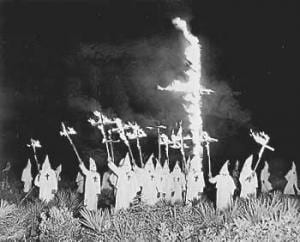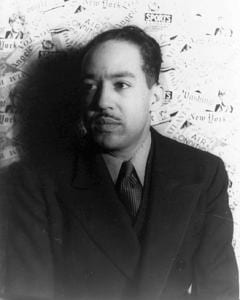“Mistakes were made.”
 That is the passive voiced apology that is no apology. People make mistakes. Human mistakes do not generally drop from the heavens like the rain. People make them, people in systems go along with them, and those people are accountable for them.
That is the passive voiced apology that is no apology. People make mistakes. Human mistakes do not generally drop from the heavens like the rain. People make them, people in systems go along with them, and those people are accountable for them.
How can we avoid mistakes? Sometimes general rules help: hanging out with people who torture puppies for fun is a bad idea. This almost always will hold up in practice. The danger is thinking that being with people who love puppies, who do not make mistakes we notice, means we can rest easy. We think we are safe, because we are with educated, decent people.* Generally, kind, nice people are better company than unkind, no so nice people. The Bible contains lesson after lesson that people who seem nice and kind are not. Do not judge hastily or you can end up with King Saul.
No.
The decent people, as the age counts decent, can organize to do terrible things. In fact, the evil can be more terrible, because the very best people, the elite, say that it is good. Legalize abortion? Just so! Jump Jim Crow? How delightful!
A reason we do not take the evils of groups like the Ku Klux Klan seriously enough is that we see the modern day degenerate form of the Klan. If one goes to a Klan meeting today, there may as many informants as members and nobody there runs much of anything other than a grift or a still. Yet as recently as my Dad’s childhood, if one opposed the Klan (as he did), then one was acting against very respectable people. In my Papaw’s day, the Klan could march at a political convention and dominate the outcome. Community leaders put on the hood. The lynching tree produced tourism for some small Southern towns.
Good friends will respond (with some justice) that all happened decades before they were born. Why should they care? First, the decent people, these Ku Kluxers were not stupid. They put in place laws, social rules, church polices, that would protect their white supremacy. They saw the future and prepared against it to “preserve the white race.” If you doubt this read about the chicanery of President Woodrow Wilson or the agitprop of his novelist Thomas Nelson Page.
If you doubt that decent men can do indecent things, then look at the Waco lynching. If you burn a man alive, and the locals sell commemorative postcards, the very best people, the decent folk, are indecent and all is lost, corrupt, and decadent.
Let’s end the evil systems they left to us, repeal noxious laws, and make Biblical restitution where we can.
A certain sort of reader will be nodding along, but we should stop and think about this. What is the modern academy, no more ideologically diverse than Wilson’s Princeton, doing that will be shameful in one hundred years? Where are the best people, the kind people, the compassionate people wrong? “Science” says has been the excuse of the eugenicist, the anti-Semite, and the racist. Where is science now being misused?
Mistakes are being made. Where?
Meanwhile remind yourself that when Langston Hughes writes about the Ku Klux he is writing about mayors, bankers, lawyers, and college professors:
Ku Klux
They took me out
To some lonesome place.
They said, “Do you believe In the great white race?”
I said, “Mister, To tell you the truth,
I’d believe in anything
If you’d just turn me loose.”
The white man said,
“Boy, Can it be
You’re a-standin’ there
A-sassin’ me?”
They hit me in the head
And knocked me down.
And then they kicked me
On the ground.
A klansman said, “N*, Look me in the face—
And tell me you believe in The great white race.”*
————-
 *Hughes, Langston. Selected Poems of Langston Hughes (Vintage Classics) (p. 163). Knopf Doubleday Publishing Group. Kindle Edition.
*Hughes, Langston. Selected Poems of Langston Hughes (Vintage Classics) (p. 163). Knopf Doubleday Publishing Group. Kindle Edition.
I have removed a slur.
Langston Hughes is my favorite American poet . . . since fifth grade! (This was one of the few things to come from that no-good year.) He always is worth reading.











